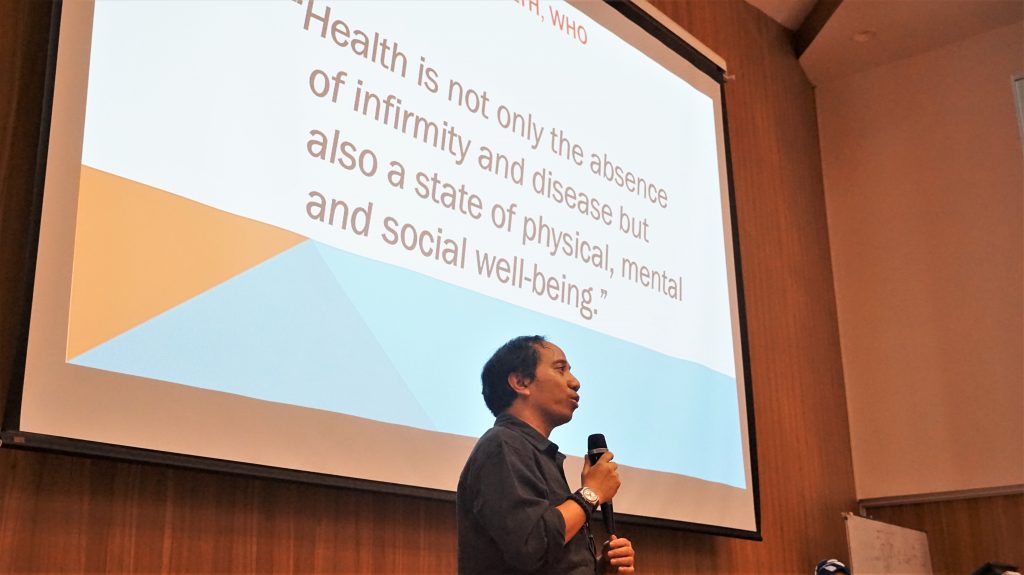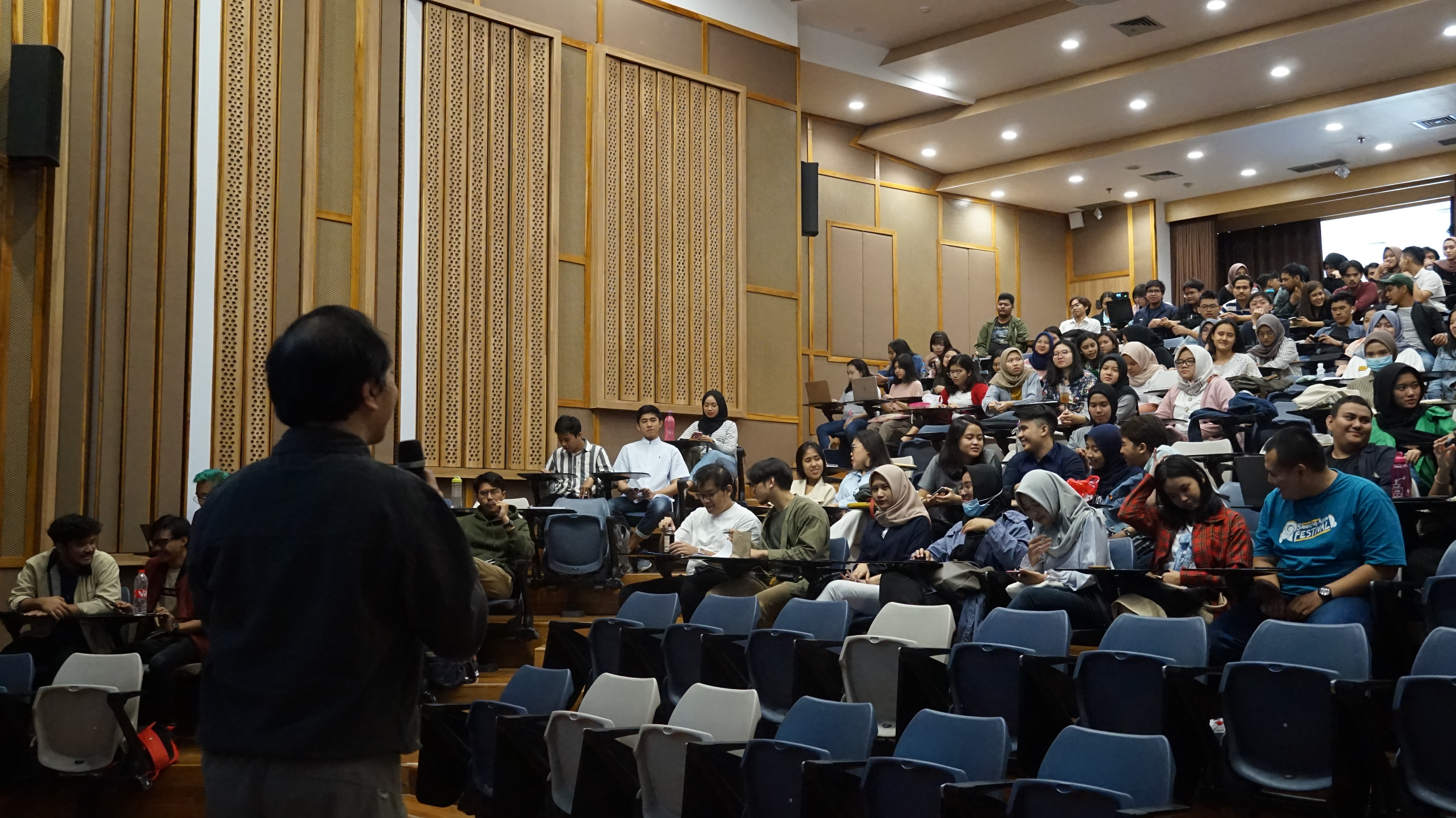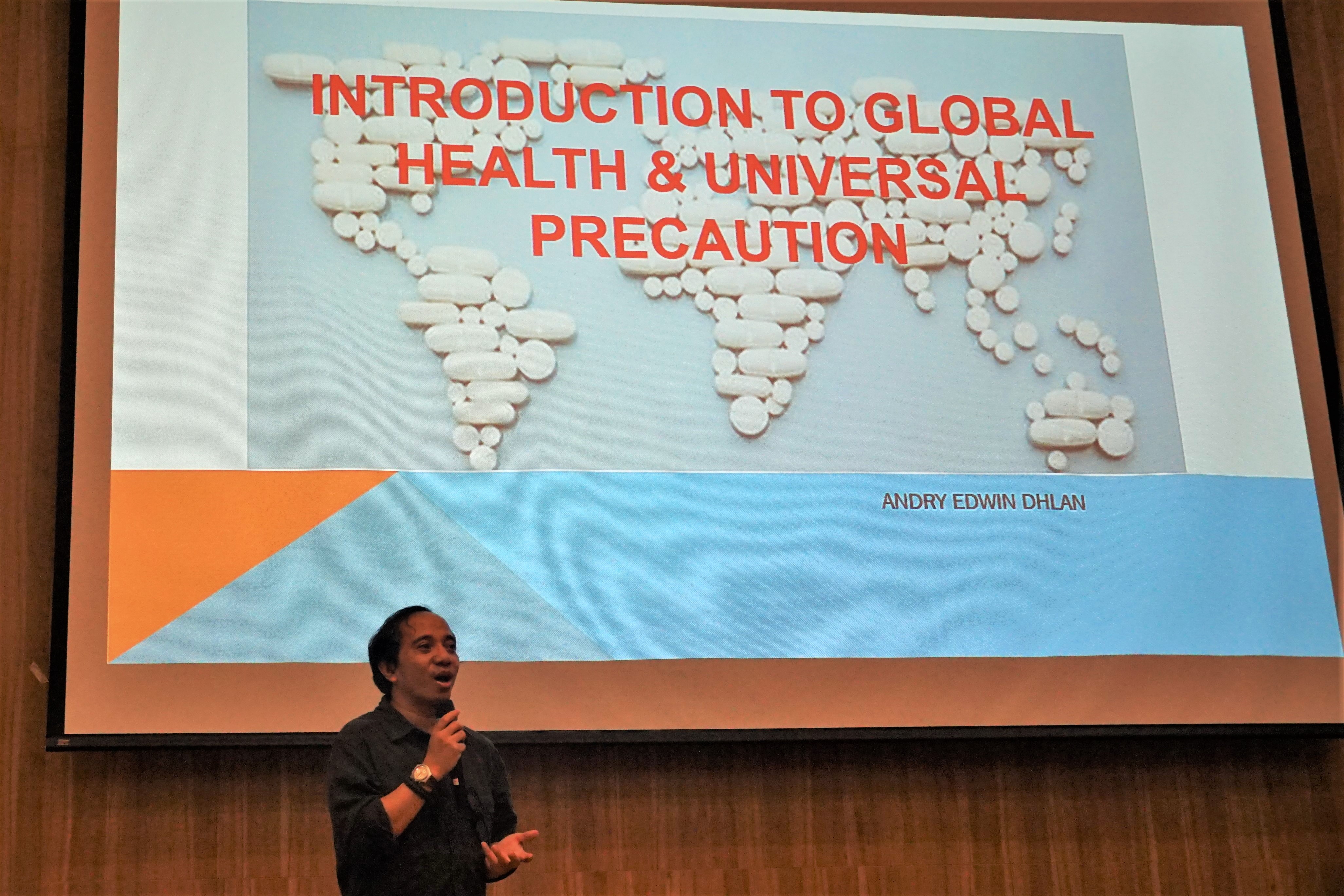Written by Student Reporter, Salsabila Mayang (Management 2020)
“Health is not only the absence of infirmity and disease but also a state of physical, mental, and social well-being.” says Doctor Andry from development of health tourism team who was becoming guest lecturer in Cross Culture and Conflict Management class.
Global health is related to health problems, issues, and concerns that transcend national boundaries, which may be influenced by circumstances or experiences in other countries, and which are best addressed by cooperative actions and solutions. (Institute of Medicine, USA-1997). It is essential to study about global health since there has been important progress in life expectancy yet 10,000 babies die everyday in the world before they are four weeks old, 529,000 women a year die in childbirth, more than 750,000 children die every year of measles, and 1.6 million people die in the world every year of TB.
Refers to any health issue that concerns many countries or is affected by transnational determinants such as climate change, urbanisation, malnutrition include under or over nutrition. In the projected years in the future, the threats in 21st century :
- Emerging and epidemic prone diseases
- Environmental changes and natural disasters
- Human made (technological) disasters
- Chemical, biological, and radiological terror threats
- International crises and humanitarian emergencies

Disciplines involved in global health can be included not only for medical science, but also social sciences, behavioural sciences, law, economics, history, engineering, and biomedical sciences since global health is dynamic and unpredictable issue, what’s more important is the universal precaution.
Recently from the beginning of this year, coronavirus become an issue of emergency global health. Started found the death case in Wuhan, China until already spread out to almost all over the world. The coronavirus novel (2019-nCoV) is a new type of virus that has never been identified before in humans, it is a large family of viruses that cause diseases ranging from mild to severe symptoms. There were two types of virus outbreaks before coronavirus which are Middle East Respiratory Syndrome (MERS-CoV) and Severe Acute Respiratory Syndrome (SARS-CoV).
Coronavirus is zoonosis (transmitted between animals and humans). Research says that SARS-CoV is transmitted from civet cats to humans and MERS-CoV from camels to humans. Some coronaviruses are known to circulate in animals but have not been proven to infect humans. Clinical manifestations usually appear within 2 days to 14 days after exposure. Common signs and symptoms of coronavirus infection include acute respiratory distress symptoms such as fever, coughing and shortness of breath. In severe cases it can cause pneumonia, acute respiratory syndrome, kidney failure, and even death.

But actually we don’t need to be too worried about the emergence of coronavirus since the level of acuteness is less than SARS but more than MERS. What’s more important is to prevent the spread of the virus through universal precaution by WHO. “Universal precaution is not only knowledge, but more like a skill. Cause it talks about lifestyle.” Doctor Andry said. Especially for worldwide traveling, universal precaution such as covering mouth and nose while coughing and sneezing, avoiding close contact with those who are sick, handwashing, avoiding unnecessary contact with animals, thorough cooking, and having good rest are very essential to do.




